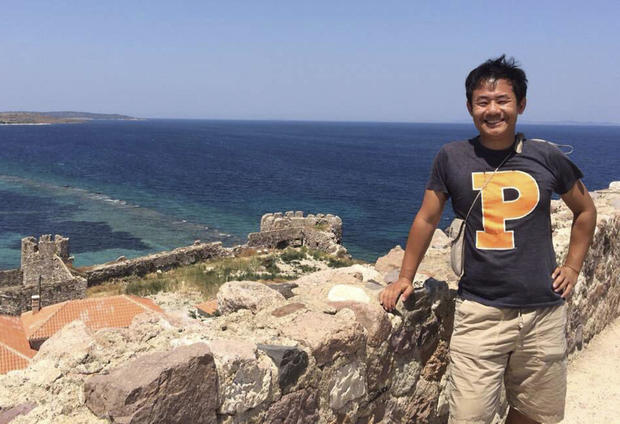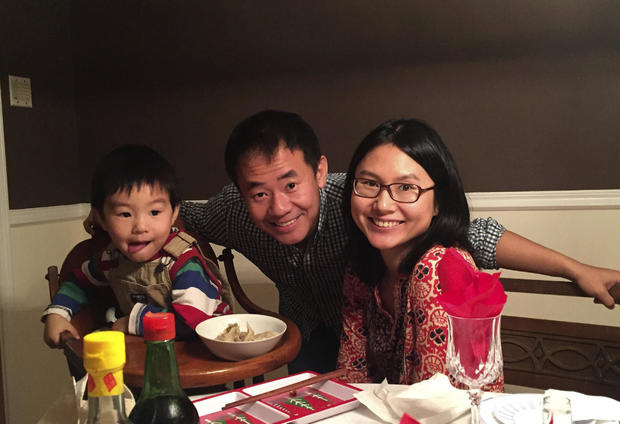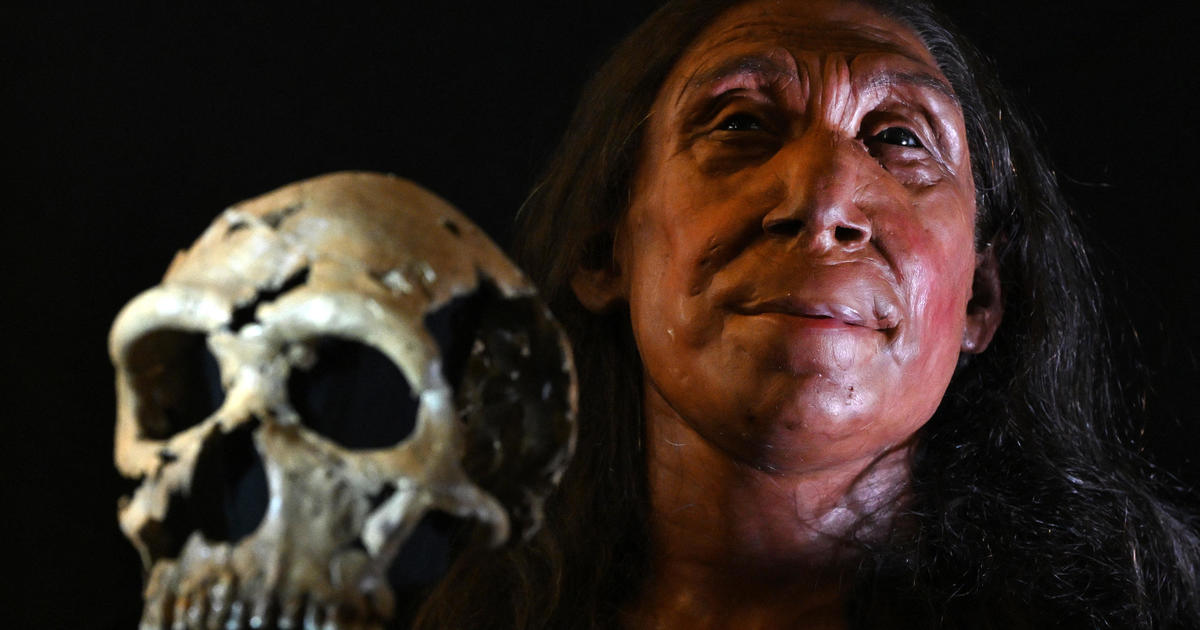"Unjustly imprisoned": Wife of Princeton researcher held in Iran speaks out
DUBAI, United Arab Emirates -- The wife of a Princeton graduate student sentenced to 10 years behind bars in Iran called on authorities there to release him Tuesday, saying the Chinese-American man has been "unjustly imprisoned."
Xiyue Wang was arrested nearly a year ago but his confinement only became known Sunday when Iran's judiciary announced his sentence, accusing him of "infiltrating" the country and sending confidential material abroad.
The 36-year-old, described by Iranian authorities as holding Chinese and American citizenship, was in Iran doing research for his doctorate in late 19th and early 20th century Eurasian history when he was detained.
In her first comments on his case, Wang's wife Hua Qu described her husband as "one of the kindest, most thoughtful, and most loving men I have ever known." She said the couple has a 4-year-old son.
"Our son has missed his father for more than a year of his young life, as my husband has been unjustly imprisoned for espionage that I know he did not and never would commit," she said in a statement distributed by Princeton. "We fervently hope that the Iranian authorities will release him soon so that he can return home to his young family."
Princeton has been working quietly with Wang's family, the U.S. government, lawyers and others to secure his release, and hopes he will be released on appeal.
In an email distributed to staff and obtained by The Associated Press, university President Chris Eisgruber said Princeton has been working on a daily basis to try to free Wang and support his family.
The university and his family chose not to publicize Wang's arrest because U.S. government officials and other advisers warned that doing so might harm Wang's interests, Eisgruber said.
In a statement to CBS News on Sunday, Daniel Day, Princeton's assistant vice president at the Office of Communications, said, "We were very distressed to learn that charges were brought against him in connection with his scholarly work, and to learn of the subsequent conviction and sentence."
He added, "We cannot comment more at the present time, except to say that the University continues to do everything it can to be supportive of Mr. Wang and his family."
Wang was arrested on Aug. 8, 2016 and is accused of passing confidential information about Iran to the U.S. State Department, Princeton's Sharmin and Bijan Mossavar-Rahmani Center for Iran and Persian Gulf Studies, the Harvard Kennedy School and the British Institute of Persian Studies, according to Mizan Online, a website linked to Iran's judiciary.
It alleged he scanned some 4,500 pages of digital documents, paid thousands of dollars to access archives he needed and sought access to confidential areas of Tehran libraries.
The U.S. State Department has not provided details on the case but called on Tehran to immediately release "all U.S. citizens unjustly detained in Iran."
Wang's advising professor, Stephen Kotkin, said his student planned to continue his research in Russia after Iran, a country he had not visited before.
His work in Iran involved scanning large numbers of documents that he intended to use while preparing his dissertation after he had left the country -- something that Kotkin described as "normal, standard scholarly practice."
In addition to Mandarin and English, Wang knows some Persian, Turkish and Pashto, and had worked as a Pashto translator in Afghanistan, Kotkin said.
Wang studied in China as a child and into his first year of college, then dropped out for a chance to study in India before eventually securing a spot at the University of Washington in 2003, he said in a speech given to an education agency.
He later studied Russian and Eurasia studies at Harvard University, then worked as a Princeton in Asia fellow at the law firm Orrick in Hong Kong in 2008.
He quit that position after only a year to join the International Committee of Red Cross as a translator for humanitarian work in Afghanistan, a country that had long captivated his interest, according to an article that appeared in China Newsweek in 2010 and was reposted on the official website of ICRC.
There, he helped collect bodies or body parts of those killed in clashes and offered aid to those injured and captured, including Taliban militants.
Fluent in the written Pashto language, Wang amused the locals with his not-so-smooth, Beijing-accented spoken Pashto, but still managed to chat with them, according to the media report.
He told Chinese media that he cherished the opportunity to work in the conflict-stricken region. "How many people will have the chance to talk and laugh with the Taliban?" Wang said.
He began his doctoral work at Princeton in 2013. In recent years, he has contributed to the Chinese online news outlet The Paper as well as podcasts.
Wang is one of several Americans in Iranian custody.
Iranian-American art gallery manager Karan Vafadari was detained along with his Iranian wife last year. They have yet to be convicted of a crime.
Iranian-American businessman Siamak Namazi and his 81-year-old father, Baquer Namazi, are each serving 10-year sentences for "cooperating with the hostile American government."





